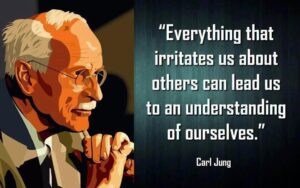Humorous but thoughtful entertainment based on a womanspassion.com magazine article plus insight from Dr. Harry and other sources about psychology and pets.
It is well known that one can draw a conclusion about a person, by looking at their pet. Some people even look like their pets, thus the pet can be an extension of themselves. But few of us realise that a marked antipathy for a type of animal also has meaning. We offer for your entertainment a short manual on the psychology of admirers and opponents of different kinds of animals.
The Cat and who likes them?
The Cat is a symbol of femininity and independence. In mythology the cat was linked to the feminine and the dog with the masculine. Hence this association seems to be stuck in our minds. A woman can imagine herself as a mysterious, graceful, languorous, downy and slightly predatory cat. A pet is an alter ego of its owner, so if one dislikes a cat, he also dislikes her owner. Ladies, who combine the qualities of both sexes harmoniously, usually enjoy the company of a cat with a strong personality. Cat lovers would say that such women may be beautiful, feminine and sweet but persistent in reaching her goals. The childless person can replace their missing baby with a cat. Kittens need care and tenderness, as they are playful and naughty, like a child. A very lonely woman with a macho cat may treat men distrustfully, and enter into intimate relationships unwillingly.
Children love cats, because they resemble a mother’s image stamped in our memory, i.e. warm and soft. A man that likes cats accepts a woman’s right to be independent. As for a bachelor with an adorable cat, he is all-sufficient and may be slow to marry, as he already has a “girlfriend” substitute. Stroking a purring cat can aid blood pressure and lower tension, as they actually use purring as sound vibration to comfort, heal and soothe themselves and their young when they are ill. Thus it can also help you to be less stressed, especially when you sit down at night after work.
Who doesn’t like Cats?
An extreme reaction such as hatred against cats might mean antipathy to the whole female sex. There’s even such a term as “cat-phobia”. If a woman hates cats, this can mean denial of aspects of her female essence and fear to show her independence. Cruelty to a cat (unable to defend themselves as much as a dog) is a sign of a vindictive character trait that can manifest in child-hood. If this is unrecognised, such cruelty is often transferred to humans in adulthood. Therefore this is an indicator of a deeper issue that requires serious attention. Cats have suffered from both exaggerated devotion in Egypt and genocide in medieval Europe. Hence on a collective level, an overly negative attitude to cats could be a hangover from medieval times. An illustration of this is the story of a cat that made a church its home and used to attend the bread and wine ceremonies. The kind church vicar who kept the cat was very surprised when a lot of the parishioners complained bitterly saying that this was a sign of the devil. It is of course a projection of our own killer instincts onto a creature that is very often abandoned and left with no option but to hunt for itself. The cat loather may change their minds if they read “Cat Miracles” by the Steigers. For there are many accounts of cats saving the lives of children, protecting people from snakes, and more.
The Dog and who likes them?
For a woman, her dog can represent a relationship with a man, even if the dog is female. Looking at a dog’s breed, you can always tell which male qualities its owner values most of all. A large dog means that its owner needs a prominent defender and reliable support.
A woman who buys a Bulldog values devotion, trustworthiness, constancy and sense of humour in her partner. A lady with Doberman has strong will power and challenges men. “Who of you can protect me better, than he does?” A lady with a snappy, malicious dog on her leash makes great demands of men, searching for unreal advantages in them, and thus is seldom happy in relationships – for she may be a bit of a tiger herself.
A man usually identifies himself with his dog. That’s why a quiet accountant, walking with a bull terrier, is secretly aggressive. A man, who likes a long haired collie is sentimental, vulnerable, but when in a critical situation, he is courageous and ready to protect his flock to the uttermost. The man who buys a Rottweiler has a sharp nature – tends to be a loner – and is tamed with difficulty. Those people with very hostile ferocious dogs are often trying to hide criminal activities or nasty secrets, by keeping people well away from their homes. Because of the need for control and discipline, many dog-fanciers, regardless of their sex, may strive for strict control in their life and also the actions of those close to them.
A child searches for a friend and a defender in a dog. An overly strong desire of a child to have a puppy can speak about an inner loneliness or a fear of life and less about a wish to have a companion for playing games. It won’t be enough just to buy a puppy, you also need to address the issue of their fear or anxiety.
Those who most appreciate dogs the most are of course the millions of people who rely upon certain breeds as guide dogs, sniffer dogs, rescue dogs, police dogs, etc. These people see them as friends and helpmates, rather than fulfilling an emotional need.
Who doesn’t like Dogs?
Those who can’t bear dogs, are often timid or afraid of what they see as only a biting, loud predator. Furthermore, many people don’t want to become the pack leader and don’t want to be bothered with all the work and discipline involved. For without it, a dog will easily show you know who is boss. Remember, a dog loves to play – to have company – and to have work to do. Therefore, choice of the right dog for your lifestyle, space and environment is vitally important for the sanity of both dog and owner, as well as the neighbours who have listen to all the unnecessary barking for attention.
The Horse and who loves them?
Horsey people are a breed all of their own. They love and admire the physical strength and beauty of the horse. These people like risk, challenge and mastery. There is an untameable aspect to deal with, as the horse has to be convinced to tolerate the rider. Therefore, the owner has to be awake, alert, wary and able to exert a mental mastery, as well as physical riding skill. The racehorse is like a well-trained athlete, yet they are not sold off to the knackery as soon as they stop winning. Hence there has to be a certain ruthlessness present in the race horse owner, unless they provide the horse with just as much care after their racing phase as before. Horses were of course exploited for warfare for thousands of years, hence they might say “Thank God humans invented tanks.” Perhaps some people feel impelled subconsciously, to pamper horses for this reason, as they certainly do a great job looking after them. The relationship between children and ponies is incredible. Here a blending of minds and hearts often takes place. Disabled children can benefit from supervised horse riding, forming a helpful bond and resonance to the horse’s agility, balance and physical control.
Those who fear Horses?
Some people are terrified to go anywhere near a horse. They are usually shy, introverted people who do not like risk and do not have the mental affinity to master a horse, which is understandable due to their size and ability to kick or throw off the rider. The more courageous person simply sees this as a challenge. Yet even those who are fearful may think they are beautiful animals.
The Hamster and Guinea Pig and who likes them?
Now to an opposite example. Those who love everything small and fluffy need a strong person’s protection, tenderness and care. They sometimes feel small and helpless. Children ask for hamsters when they themselves want to be big, strong and caring of little animals. Children with social and communication problems can change greatly through caring for such pets. In fact caring for animals in general can completely change emotionally damaged children.
Who doesn’t like Hamsters and Guinea Pigs
If a person cannot suffer fools gladly, he or she will hardly ever be drawn to owning a quiet hamster or a peaceful guinea-pig, as they do not represent much of a mental challenge.
Mini Pigs or even larger ones and who likes them?
Pint-sized porkers can make delightful pets if you have the room for them. Pigs are more intelligent than dogs and can even be taught to count. People who like pigs (large or small) are happy-go-lucky people, who don’t mind being a bit boisterous – being in a mess sometimes – eating heartily – being generous – and having fun. Pigs like grains, fruit and vegetables and they are sociable, getting along with dogs, cats, geese and other farmyard animals. Thus these are the conditions you would need.
Those who don’t like Pigs large or small.
Those who keep large pigs in very small and confined pens, as in factory farmed pigs (which most are) obviously do not relate to the pig’s emotional or physical discomfort. People who don’t like pigs (or those who are indifferent to their suffering) are often controlled, disciplined people who like everything neat and in order. You could say they are perfectionists in many ways, unable to appreciate a natural, organic order of things which is not always controllable or tidy. They are the opposite of the hale and hearty, sometimes messy, more-generous pig lovers. Of course if a pig, large or small, has movement, companions and comfortable shelter (as on this free range farm) they will thrive and the owner will be in harmony with our beautiful but messy world. To such farmers their animals are somewhat like pets for a while. However, for those who couldn’t be bothered with such care, the pig (small or huge) is not for them.
The Rat and who likes them?
A domestic rat is intelligent, white and fluffy. Loving a rat is the same as declaring to the whole world: “I’m not a bore, I have original thought, and your stereotypes have no power over me!” The one who likes rats will check everything out thoroughly and only then draw conclusions. They also don’t care about other people’s opinions. If a child brings a rat home, it means he or she has a rather sociable, curious and kind-hearted attitude.
Who doesn’t like Rats?
Conservative, cautious people, keeping to beaten tracks in life, and also shy, diffident people cannot stand white rats. Then there are scientists who see rats just as tools for research. To do this, one’s feelings have to be put to one side. So obviously compassion for the rat has little input in this sacrifice on the altar of science. Is this because of a very negative association with the rat species as a whole? Was the rat was blamed for our own lack of hygienic waste and water management until recent times? Yet they are merely playing a role in Nature as part of a scavenger species. Many children who have pet rats have found that others have no sympathy for them whatsoever if their pet dies. This seems to be part of a collective attitude of indifference to rats for historical reasons. Yet certain breeds do make charming but short-lived pets.
Parrots and who likes them?
Melancholic, vulnerable or lonely persons, like to buy noisy and long-living parrots. They don’t even suspect that parrots can be a lot of trouble, as some parrots seem to constantly aim at dying of lung complaints.. and caged birds can carry disease which can affect your lungs as well. So make sure the rooms are well aired and cages cleaned outside. Colourful parrots can remind us of romantic tropical islands, exotic lands and perhaps compensate for a deficiency of travel or excitement in everyday life. Elderly people’s infatuation for parrots is understandable. Many older people would like to own a dog, but they don’t have enough strength to walk it or to deal with its exuberance. Furthermore, a parrot can compensate for a quiet life and bring humour, especially if taught to talk. If you want to see an amazing parrot routine search for the video “Einstein the African Grey Parrot on Animal Planet”. The African parrot seems to be the most intelligent, even being able to distinguish wool from cotton and use the correct words to describe them. This is a parrot who can tell you which colour key is being shown. You can almost see him thinking!
Who doesn’t like Parrots?
The irritable, quick-tempered or those burdened with serious stress cannot value the humour of living with a parrot. When a bird swoops on their head and gets tangled in hair, the bird becomes a nuisance. Those who live with noise and would prefer more peace, quiet and harmony, have no liking for stridently raucous parrots or incessantly chirping budgies. Very few people could stand to have a screeching lorikeet in a house, without reaching for the ear muffs. Do they have sound deadening ear canals?
This brings us to the type of person who would want to have a caged bird that is meant to soar in the heavens. Birds in mythology are a symbol of the freedom the soul, hence we might ask, are they owned by persons who are restricted and whose soul-qualities are caged, unable to soar? Hence it is important to allow birds to have two hours of freedom from a cage per day, in order to fly around the house. They will go back into the cage to rest, of their own accord.
They are also not helicopters and do not fly vertically. A long cage linked to the outside, rather than a high one allows them to use the muscles in their wings. Can you imagine what it would be like not being able to use your muscles? Can birds, who have proved to be no ‘bird brains’ at all, become as depressed as some of the people who are attracted to the idea of a caged winged creature? After all, it is easy to attract wild and free birds to the garden by using bird feeders. Freedom loving people would enjoy this option more. Many birds will become regular visitors, but please don’t feed them on white sugar as their feathers can fall out (like our teeth)!
Fish and who likes them?
Three categories of people prefer silent fishes. The first category includes active, emotional, spirited people who like to calm down looking at the slow motions of fish. The second category includes original and somewhat eccentric thinkers. These people like cold-blooded fishes for their contrast to emotional humans and choose to contemplate underwater worlds regularly, as an escape from reality. Then there are quietly aggressive people who like to watch how such creatures can devour each other or eat their own spawn. But most people are just fascinated by their beautiful movements.
Who doesn’t like Fish in tanks?
Extremely sensitive people, who cannot stand aggression or restriction in any form. However, it is possible to keep fish in ponds as shown below.
Tortoises or Turtles and who likes them?
According to Chinese mythology, the Earth is resting on a gigantic tortoise’s shell; an embodiment of reliability and constancy. Connoisseurs of comfort and stability, with delicate soul qualities, like to buy the tortoise. A tortoise will never replace either a husband or a friend. If a tortoise lives in the house of a lonely person, it may mean being ready for a long and stable relationship. Turtles in small ponds make interesting pets.
Who wouldn’t like a Tortoise?
A slow-moving tortoise would irritate an impetuous, sociable, talkative person, who needs listeners and focuses mostly on themselves. Those who are nervous or flighty would benefit greatly from having a pond for turtles and fish, if they could put in the effort required. For this can engender calm and represents, in Zen terms, harmony with the Tao or flow of life (like water).
People who breed pets
Although there are lots of people who love animals and breed them ethically, we have all heard or met those people who run the so-called puppy mill factories. They churn out dog after dog, usually the small fluffy manic variety that drives everyone else crazy with constant yapping. Their animals are seen as a licence to print money. If you are buying a pup or kitten, check out the conditions where the mother animal is kept first. That will tell you a great deal about the breeder. You could find resistance to this request. For many of these pedigree dogs or cats are so seriously inbred some of them can hardly walk, or breathe, or function normally.
What does it say about those who want to buy a genetically deformed animal for the sake of status? Perhaps most people are unaware of these facts. Yet there are thousands of beautiful pets just waiting and longing for love in animal shelters. They are probably ten times healthier, not so inbred, and much easier and cheaper to look after. (Yet the Vets might lose a lot of business if more people did this and their bank accounts would decrease.) Therefore, check out a few options first when choosing a pet. There is no need to rush.
What if you don’t like pets of any kind?
If you are adult and independent, have no home pets and are absolutely indifferent to them, it may mean the following:
- You’ve already got someone to take care of or to control. You have enough close friends ready to support and protect you. You have no need to pour out your feelings onto something fluffy or feathery.
- You don’t get tired of communication with people and contact with them readily.
- You don’t want to take responsibility for another living creature. You just want to deal with your own life first and also don’t need to depend on somebody else.
- If you don’t like pets and they are uninteresting to you, then you shouldn’t be ashamed of this fact. Sometimes contempt and hatred for mankind are hidden behind an exaggerated passion for animals, when this involves a neglect of human company. But this is an extreme example.
As a rule, we choose pets for ourselves, following three motives (subconsciously).
“This animal is an image of myself!” (How many people look just like their pets!)
“Ah, how I wish I could behave like this!” (a desire for more freedom or escapades)”.
“I need the qualities of this creature to be close to me.” (A positive affinity to the best qualities of animals or a resonance to the worst).
Who is the pet’s real owner?
Even in the biggest family the idea of buying a pet occurs to one person and all the others agree gladly or reluctantly. The one who had the idea is the real owner and his or her character is reflected in the choice of an animal. So look after your animals, as they are a reflection of an approach to yourself and your own body.
And of course in a wider sense, how we treat our animals collectively is a reflection of our whole approach to nature and what we ultimately attract back to ourselves.
Author: Judith





